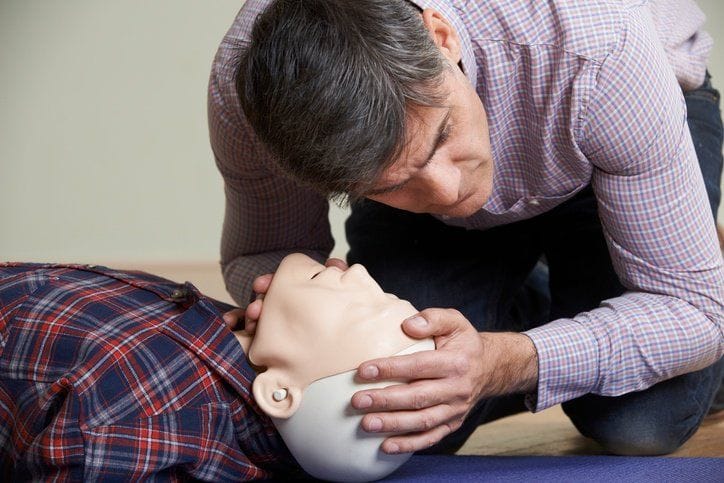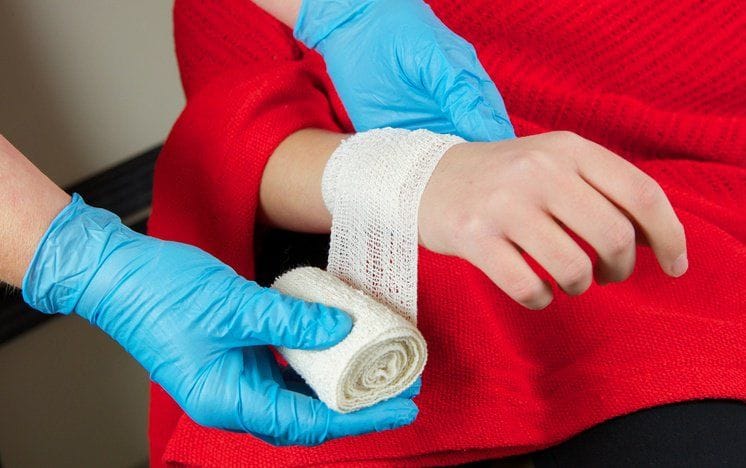
Paramedics provide vital pre-hospital emergency care to ill or injured individuals, such as victims of trauma, poisoning, or accidents. This challenging role can be very rewarding, but it also requires a lot of hard work and dedication.
Though many of the required skills paramedics need may be taught and developed in specialized programs like the course provided by Oxford College, there are certain qualities which can demonstrate if someone may be a good fit for pursuing this kind of training. To find out what these qualities are, keep reading!
Students in Paramedic Programs Benefit From Being Physically and Mentally Fit
If you’re seeking to enroll in a paramedic program, be aware that your daily duties upon graduation will most likely require high levels of physical fitness. The job of a paramedic involves a lot of lifting, pushing, and pulling of large amounts of weight, often even over 50 kilograms.
 Paramedics do a lot of lifting so physical fitness is a must
Paramedics do a lot of lifting so physical fitness is a must
Not only should you be physically fit, but mentally as well. It takes some resilience to be able to frequently operate in gruesome accident scenes, and this is not uncommon for paramedics. Incorporating both exercise and relaxing activities into your daily schedule can be very beneficial in this regard, helping to ensure that you come back to your job refreshed and ready to roll.
Quick Problem Solving is Essential in the Career of a Paramedic
In a quality paramedic course, students are able to hone their critical thinking and decision-making skills to effectively address medical emergencies. However, a certain propensity for quick problem solving is also a necessity.
Many of the situations paramedics encounter have to be evaluated with speed in order to develop and implement effective solutions in a timely manner. In such instances, even a few seconds could mean the difference between life and death, and being able to think quickly to reach accurate diagnoses and logical solutions is crucial for success.
Paramedics Need to Display a High Tolerance to Stress and Pressure
Closely related to the trait of quick thinking and problem solving is the ability to do so under high stress and pressure, even when emergency situations take a turn for the worse. The pivotal decisions that paramedics often need to make may frequently take place in situations of chaos.
They may also need to react swiftly to unexpected turns of events, such as the sudden deterioration of a patient’s condition en route to hospital. These situations can be extremely stressful, but paramedics need to be able to navigate them coolly and calmly, always focused on providing life-saving assistance.
Balancing Compassion and Confidence in Communication is Key
Paramedics communicate with a variety of people including dispatchers, hospital staff, onlookers at the scene of an accident, and patients and their family members. As such, paramedics need to be great communicators with the ability to be confident, concise, and compassionate at the same time.
For instance, a certain amount of confidence is necessary if you need to push your way through a crowd onto the scene of an emergency, or if you need to provide clear and concise instructions to a shaken up patient. At the same time, patients and their family members or friends may also be very distressed, and need to be spoken to calmly and gently. The ability to find the correct balance, especially in high pressure environments, is a paramount skill for paramedics to have.
 Paramedics must be able to communicate with compassion and confidence
Paramedics must be able to communicate with compassion and confidence
Do you think you would make a great paramedic?
Consider enrolling in the primary care paramedic courses offered by Oxford College.






